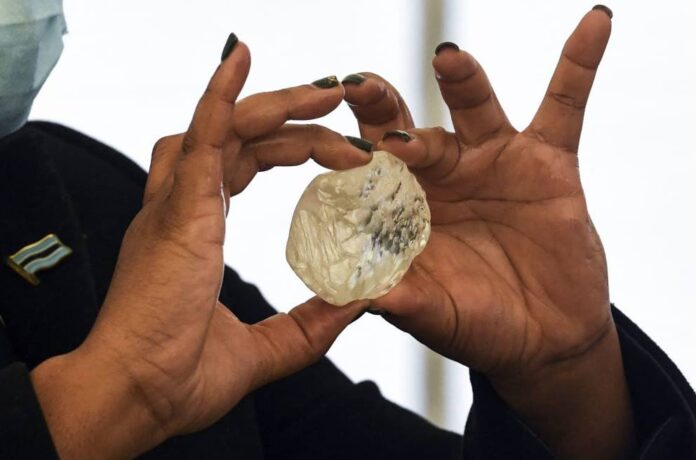Botswana, a landlocked country located in Southern Africa, has always been designated as an example of success on the African continent. Considering the challenges faced by many Mineral rich African countries, Botswana has managed to achieve remarkable economic growth, political stability, and social development.
One of the main factor of Botswana’s success is its commitment to political stability. Since its independence from Britain on 30th September 1966, Botswana has put itself on a peaceful and democratic path. The country has a tradition of multiparty democracy, with regular, free, and fair elections. During a speech given at the opening of the fifth session of Botswana’s third National Assembly in November 1978, the first president of the nation Seretse Khama declared “Democracy, like a little plant, does not grow or develop on its own. If must be nursed and nurtured if it is to grow and flourish. It must be believed in and practiced if it is to be appreciated. And it must be fought for and defended if it is to survive”.
This political stability has provided a conducive environment for economic development and has attracted foreign investment. After a brief decline in 2020 and 2021 due to the pandemic, the Southern African nation managed to attract over $216 million in 2022 (World Bank Data).
The accountable and open governance of Botswana has received high appreciation. Sensible economic policies that emphasise fiscal constraint, careful resource management, and anti-corruption activities have been implemented by the government. The effective utilisation of the country’s natural resource revenue, especially the diamond industry, has been crucial to financing growth and public works programmes.
In 2022, Botswana has scored 60 on a scaled from 0 (highly corrupt) to 100 (“very clean”) which is on a par with countries such as Spain, Saint Vincent and the Grenadines. In contrast, a large number of other African nations have succumbed to the so-called ‘The resource curse’.
ALSO READ:
- 5 Compelling Reasons to Explore the Beauty of Namibia
- Kenya – Silicon Savannah: How the Tech Industry is Transforming the Country
Since its Discovery in 1969, diamonds have become a significant contributor to Botswana’s economy, however the country has been trying to diversify away from the precious stone. Some of the main sector that the government has invested in are tourism, agriculture mainly the cattle farming, and manufacturing, reducing dependency on a single revenue source. As an example, Botswana is one of the few countries that export beef meat to the EU. The total revenue in the Meat market amounts to US$819.70m in 2023. In addition to increasing economic resilience, this diversification approach has raised living standards generally and produced job possibilities.
Botswana has been fortunate to have visionary leaders who prioritized long-term development over short-term gains. Seretse Khama, the country’s first president, set the tone for a stable and prosperous nation. Subsequent leaders, including Festus Mogae and Ian Khama, continued to build on this foundation, by emphasizing education, healthcare, and infrastructure development across the country. On 31st of May 2023, Botswana has landed a new deal with De Beers, the main diamond miner in the country. According to the deal, the Southern African nation will get 30% of the diamond proceed and this will increase to 50% within a decade. This extra revenue could be used for further investment in the country’s development.
On the social front, Botswana places a high priority on human development, as evidenced by its robust social policies. The government has invested in education and healthcare, leading to significant improvements in literacy rates (86.82%) and life expectancy which is 69.86 years in 2023. Social safety nets, such as old age pensions and poverty alleviation programs, have been instrumental in reducing inequality and fostering social cohesion. in 2011, the government launched an ambitious project to combating poverty. The Poverty Eradication Programme (PEP) aims to enable present and future recipients to live respectable, economically independent lives.
Botswana’s success is also rooted in its strong sense of community and cultural values. The government has actively involved local communities in decision-making processes, especially in natural resource management such as protection of wildlife in regions bordering game reserves and national parks, just to name few. This approach has ensured that the benefits of economic growth are shared more equitably, promoting a sense of ownership and responsibility among citizens.
Botswana is able to achieve this success thank to the combination of political stability, responsible governance, economic diversification, visionary leadership, a commitment to social development and the blessing from its natural endowment.


